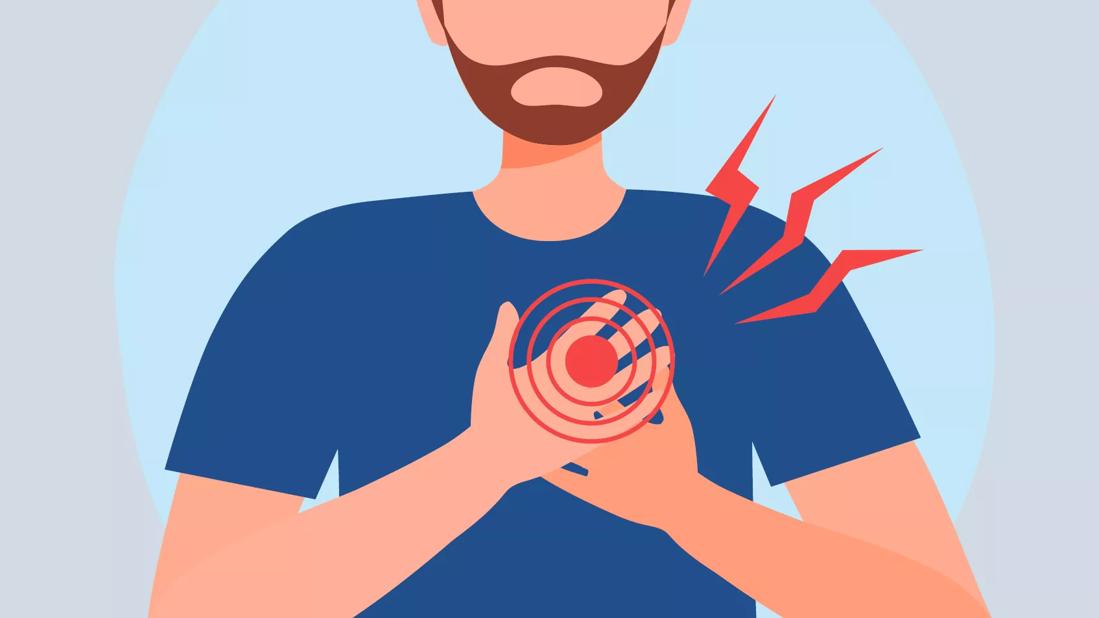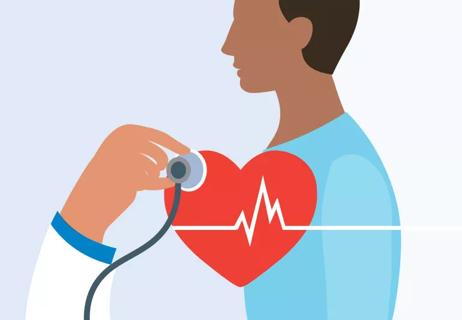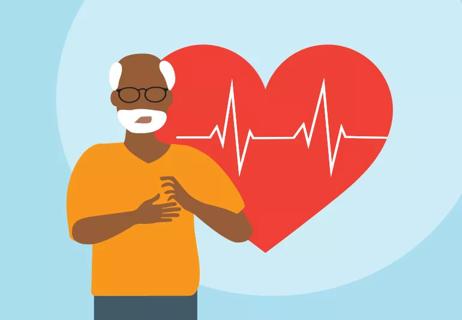Heart disease prevention is key

Atherosclerosis is a condition where the arteries in your heart become partially or fully blocked by a fatty material known as plaque. This can lead to coronary artery disease, which is also known as coronary heart disease or heart disease.
Advertisement
Cleveland Clinic is a non-profit academic medical center. Advertising on our site helps support our mission. We do not endorse non-Cleveland Clinic products or services. Policy
Unfortunately, there isn’t a cure for coronary artery disease, and you can’t reverse this condition once you’re diagnosed. But you can make lifestyle changes to reduce your risk of developing further health problems, such as a heart attack. Options include adjusting your diet, exercising more and limiting your alcohol intake.
“Although we can’t cure heart disease, we can make it better,” says cardiologist Steven Nissen, MD, Chief Academic Officer, Sydell and Arnold Miller Family Heart, Vascular & Thoracic Institute. “Most forms of heart disease are very treatable today.”
Researchers are always striving to develop new and better coronary artery disease treatments. Newer drugs can reduce your LDL cholesterol (the kind that leads to coronary artery disease) to lower levels than before.
A cure for coronary artery disease is a long way off, though. For example, doctors still don’t have the ability to erase plaque in arteries completely.
“We will likely become better at preventing coronary artery disease before we find a cure for it,” says Dr. Nissen. “This is very important because the best coronary artery disease is the coronary artery disease you never develop.”
Prevention is key because heart muscle can’t regrow after it’s damaged by incidents such as a heart attack. “There is some evidence that we may be able to delay or even prevent a heart attack by aggressively treating high blood pressure and high cholesterol,” says Dr. Nissen. “However, once a heart attack occurs and heart muscle dies, we can’t regenerate those cells.”
Advertisement
Another form of heart disease, valve disease, can also have irreparable consequences, says Dr. Nissen. “Once a heart valve becomes stiff and calcified, there is no way to restore the valve’s flexibility. It must be repaired or replaced.”
Heart disease risk factors include factors you can’t control, like age, sex and genetics. But you can make lifestyle changes to prevent coronary artery disease from developing in the first place.
In fact, some of the most exciting advances have been made in disease prevention.
“We have learned a lot about the risk factors for coronary artery disease and can recommend lifestyle changes and medications to lower your risk,” notes Dr. Nissen. “We have excellent medications that can prevent coronary artery disease if you’re living with diabetes, high blood pressure and high cholesterol.”
Here are risk factors contributing to the development of coronary artery disease that you can control.
Adopting a heart-healthy diet is an easy way to get healthier. With a heart-healthy diet, you avoid foods high in trans fats or saturated fats, which raise your cholesterol. In other words, you stay away from eating excess amounts of red meat, fried food, full-fat dairy products and foods cooked in coconut or palm oil.
Instead, your meals focus on foods that protect your heart, such as fruits and vegetables, whole grains, legumes, lean proteins and fish.
Smoking is associated with many health problems, including high blood pressure and high cholesterol. Your healthcare provider can give tips about the best ways to quit.
A sedentary lifestyle increases your risk of developing coronary artery disease. But exercise helps. Experts recommend walking 30 minutes five times per week. Being physically active also helps you shed excess weight, another coronary artery disease risk factor.
Excessive drinking can lead to high blood pressure, or even damage the heart itself. Try reducing, or limiting, alcohol. Current recommendations say women should have no more than one drink a day, while men should have no more than two drinks daily.
Stress has a negative impact on heart health. For example, anger and fear can lead to elevated blood pressure, a known risk factor for coronary artery disease.
Learning techniques to manage stress can help. Doctors recommend learning relaxation techniques such as mindfulness or meditation, or incorporating exercise into your daily routine.
Diabetes, high blood pressure and high cholesterol cause serious health issues if left untreated. So can coronary artery disease. If you have any of these conditions, be sure to follow your healthcare provider’s treatment plans and recommendations.
Advertisement
In general, regular checkups are a good way to make sure you’re on the right health track. Your doctor may opt to prescribe medicine that helps lower your cholesterol or blood pressure. Or they may see early warning signs of coronary artery disease, and then recommend diet or exercise changes.
Once you’ve been diagnosed with heart disease, you can’t be cured. But you can treat the things that contributed to the development of coronary artery disease. In turn, this can reduce how the condition impacts your body.
“There is some evidence that normalizing high blood pressure and lowering cholesterol to very low levels will partially reverse plaques in the coronary arteries,” says Dr. Nissen. “They won’t go away completely, but they shrink enough to make a difference.”
Without treatment, heart disease can shorten your life. However, staying on top of your health — and putting together a treatment plan with your doctor — can allow you to enjoy life for many years to come.
“We can open vessels to relieve symptoms from coronary artery disease,” notes Dr. Nissen. “We can repair or replace diseased valves. When damage to the heart muscle causes your heart to fail, we can offer a mechanical assist device to help your heart pump more strongly or do a heart transplant.
Advertisement
“These measures don’t cure the disease, but they do allow you to recover and live a long, functional life.”
Video content: This video is available to watch online.
View video online (https://cdnapisec.kaltura.com/p/2207941/sp/220794100/playManifest/entryId/1_orvplbvf/flavorId/1_5f3sgelj/format/url/protocol/https/a.mp4)
Can You Reverse Coronary Artery Disease?
Advertisement

Sign up for our Health Essentials emails for expert guidance on nutrition, fitness, sleep, skin care and more.
Learn more about our editorial process.
Advertisement

Eating heart-healthy foods, moving around more and getting quality sleep are a few ways to get started

If you don’t have other symptoms, try using relaxation techniques and vagal maneuvers to calm your heart down

Chronic stress can trigger palpitations, inflammation, angina and other serious heart issues

Yes — and depending on the level of dehydration, you may need emergency care

Research shows a strong association between rheumatoid arthritis and heart issues

Knowing what you can do to prevent or manage heart disease is half the battle

A skipped heartbeat is usually your heart returning to its normal electrical path

Don’t self-medicate with vitamin supplements without consulting a doctor first

Even small moments of time outdoors can help reduce stress, boost mood and restore a sense of calm

A correct prescription helps your eyes see clearly — but as natural changes occur, you may need stronger or different eyeglasses

Both are medical emergencies, but they are very distinct events with different causes